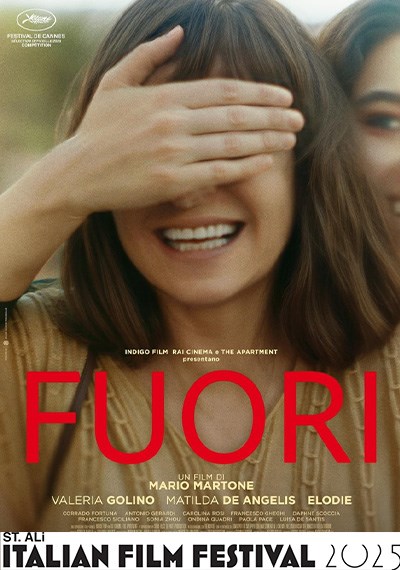
Fuori | Italian Film Festival 2025
Click here if you liked this article 43 ![]()
https://www.palacefilms.com.au/fuori
Date Reviewed: 12/09/2025
Valeria Golino brings Goliarda Sapienza vividly to life in Fuori, a standout at the Italian Film Festival. The film is a sensitive yet powerful exploration of the struggles and indignities faced by a brilliant female writer in Rome during the early 1980s. With delicacy and restraint, it captures Goliarda’s disillusionment with life and the unexpected insights that emerge from her eventual breakdown.
We witness her descent into despair as she struggles to find purpose. In one striking sequence, Goliarda applies for jobs cleaning hotel rooms, waiting tables, even working as a kitchen hand—only to be rejected for her lack of experience, and, cruelly, for being a middle-aged woman. Her sense of identity crumbles further when publishers dismiss the manuscript she has devoted a decade of her life to—The Art of Joy—as “unpublishable.” Once celebrated in intellectual circles, she is now ridiculed and abandoned by the very friends who once admired her.
One dinner party becomes a turning point. Publicly humiliated by her host, and numbed by alcohol, Goliarda impulsively steals a piece of jewelry from her wealthy friend. The act leads to her exposure, arrest, and imprisonment in Rome’s Rebibbia women’s prison.
Cinematographer and director use atmosphere with great precision: shifting landscapes, eclectic soundscapes, and purposeful silences sustain the film’s tension. The measured pacing ensures that the protagonist’s emotional turmoil transfers directly to the viewer. In one unforgettable scene, Goliarda erupts in uncontrollable laughter within her cell—an unsettling break from reality that triggers conflict with fellow inmates.
Inside prison, the story deepens. Rumors, factions, and suspicion swirl around her. She is interrogated about her politics, repeatedly asked if she is a “politico.” Yet she earns the trust of a clairvoyant inmate who claims kinship with Marilyn Monroe, and soon forms strong bonds across class and generational divides. Her connection with the younger Roberta—played with raw brilliance by Matilda De Angelis—is particularly moving.
Paradoxically, within the walls of Rebibbia, Goliarda experiences what she calls an “unbelievable freedom.” Stripped of social pretenses, she discovers unexpected solidarity and joy. Even after her release, she continues to nurture these friendships, enriched and liberated by them.
The film closes on a poignant note: though The Art of Joy was dismissed during her lifetime, Sapienza’s masterpiece was eventually published posthumously, securing her place as one of Italy’s great literary voices. Fuori not only tells her story but also reminds us of the resilience of art—and of the unexpected places where freedom and connection can be found.
By Olympia Koziaris